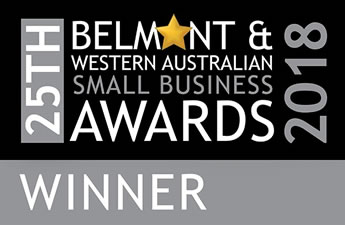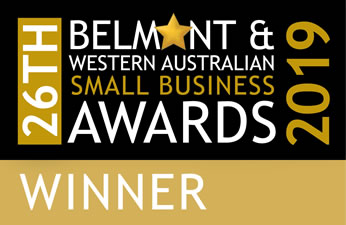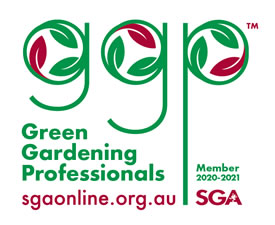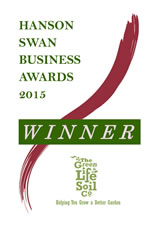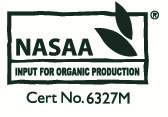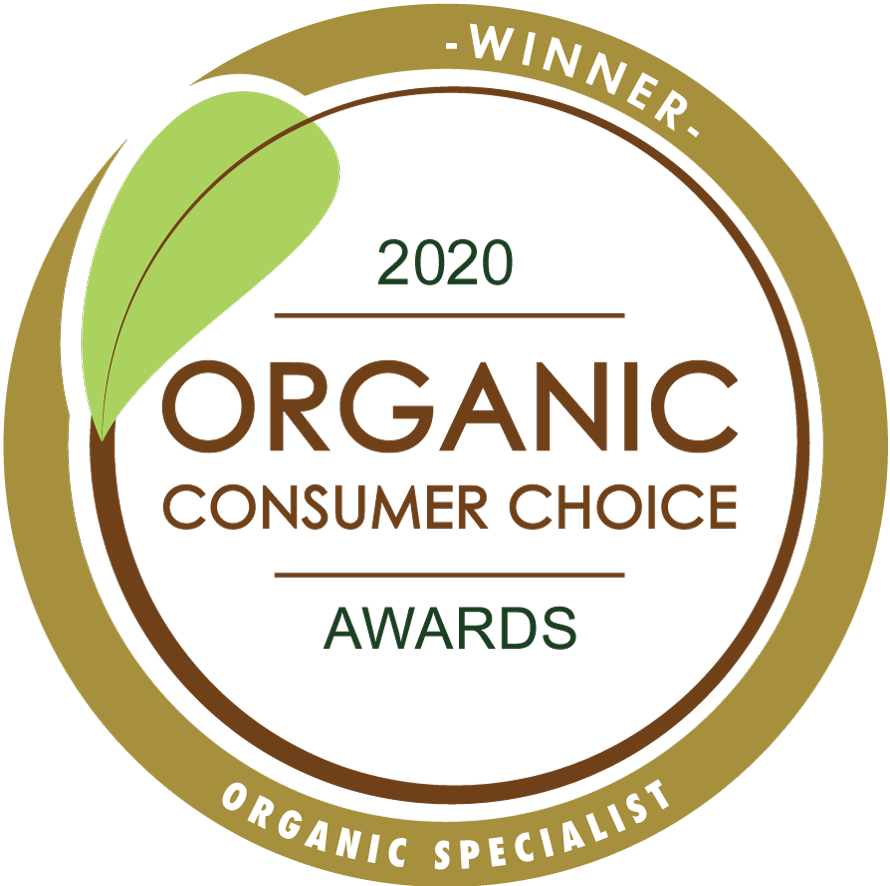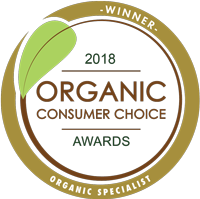| item(s), Total: $0.00 View Cart |
| Shopping cart is empty. |
This year, there'll be more display gardens to inspire you; and (as well as the cooking talks & many interesting gardening talks) there'll be landscape designers giving tips & info to help you get the best design for your backyard, your budget, and your vision. NGIWA are working hard to bring you more interesting exhibits each year; so please support the event and make sure the organisers hear from you what you'd like to see in the future, so it will continue to evolve and be relevant for Perth gardeners. It's on 11-14th April and early bird tickets can already be purchased online - see their website for more info here.
And if you're still hibernating inside away from the heat and not thinking about going outside to work in the garden - we're on the downhill slide to Autumn now, so hang in there! Grab a cool drink and have a read of the newsletter - hopefully it may get you inspired. Until next time - happy gardening! Linda & the Team @ Green Life. In this newsletter: Jobs to do in the February garden Jobs for the February garden
What to plant now
Basil, Beans, Beetroot, Broccoli*, Brussel sprouts*, Cabbage*, Carrot, Cauliflower*, Celery, Chives, Kale*, Kohl rabi*, Leek, Lettuce, Parsnip, Radish, Silverbeet, Spring onion, Swede, Turnip, Zucchini * Members of this family (brassicas) are generally considered Winter crops in Perth. Brussel sprouts are marginal in Perth (they really love cold weather) but if you want to give them a go, get them in early as they're fairly slow growing, as are Cauliflower. Protect your brassica seedlings in hot weather and watch out for pests that will be active in the warm weather. General tips for growing from seed:-
Fertilise! When, why & what? Organic gardeners know that building your soil is the best way to create long term healthy and water efficient gardens. But it does take time, and a number of inputs to increase your soil's fertility (and improve soil structure). Organic gardeners know that building your soil is the best way to create long term healthy and water efficient gardens. But it does take time, and a number of inputs to increase your soil's fertility (and improve soil structure).If you're growing selected hardy plants (eg. shrubs & trees), you may need to do very little fertilising providing you have improved the soil initially, and allow leaf litter to remain as mulch so that nutrients are recycled (and ensure water & mulching is adequate in our hot summer).
If you're growing food plants, especially fast growing vegetable crops, you may need to feed the soil a little more. You may have heard of the term 'nutrient dense' food? Basically this means that if plants have access to a wide range of the nutrients as they grow, you're getting the maximum nutrition when consuming your crops, and the waste and/or prunings can go in your compost to recycle nutrients back into your garden. Using your own compost products in your garden is a fantastic idea ~ we're all for 'closed loop' systems. But unless you know those plants used to produce the compost were grown in very healthy soil, you may be fostering a 'deficiency loop'.
The only way to really tell what range of nutrition is in your soil is to have a sample tested by a laboratory. They'll give you a written report and usually indicate what steps you can take (assuming any are needed) to balance out your soil nutrition.
.JPG) But healthy plant growth, neutral pH levels, and few pest and disease issues are good indicators too. Healthy plants are less susceptible to attack (just like when you're well rested & healthy you're less likely to catch bugs that are doing the rounds). Adding small amounts of a wide range of nutrition regularly & keeping up regular watering (which isn't the same as over watering) is the best way to try and ensure that your plants can enjoy a balanced diet of available nutrition. But healthy plant growth, neutral pH levels, and few pest and disease issues are good indicators too. Healthy plants are less susceptible to attack (just like when you're well rested & healthy you're less likely to catch bugs that are doing the rounds). Adding small amounts of a wide range of nutrition regularly & keeping up regular watering (which isn't the same as over watering) is the best way to try and ensure that your plants can enjoy a balanced diet of available nutrition.Building the soil to a level where we can achieve 'closed loop', healthy food production takes time; and it obviously depends on where your starting point is to begin with. Each year, adding by mulch and organic matter we can build humus (long term organic matter) in the soil for existing gardens. If you're starting from scratch, you've got an even better opportunity to do some intensive soil improvement before planting.
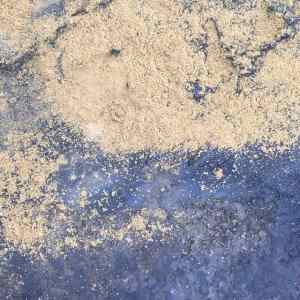 Clay (and Charlie Charcoal) is/are ideal; because they are permanent additions to your soil, improving water and nutrient holding, and creating a loam structure rather than pure sand ~ which means it's a better environment for soil microbes (the organisms that do all the work in making nutrients plant available, and are the building blocks of the soil food chain.) Clay (and Charlie Charcoal) is/are ideal; because they are permanent additions to your soil, improving water and nutrient holding, and creating a loam structure rather than pure sand ~ which means it's a better environment for soil microbes (the organisms that do all the work in making nutrients plant available, and are the building blocks of the soil food chain.)Often we're asked what fertlisers are "the best"... but the answer isn't straightforward - because it depends on so many factors. Overall, we think that building healthy soil is the best way to get a healthy garden long term. However, sometimes plants are just HUNGRY. If the nutrients aren't plant available (either not there in the first place, or locked up with high or low pH) then fertlisers can save the day.
Here's a look at some of our most popular fertlisers, and why we recommend them:-
Liquid fertilisers.These are great to give plants a quick boost; as nutrients in water are readily available. For leafy greens, a light liquid feed every couple of weeks will keep things flourishing. There's no need to use more than the recommended dose; in fact you'd be better off using half strength twice as often. Kelp. This is seaweed; and while it's not considered a 'fertiliser', it is an excellent plant tonic. It contains trace elements & enzymes that stimulate soil biology and help plants cope with stress. It is particularly good when transplanting trees/shrubs or planting out new seedlings. You can buy seaweed tonics in many forms; we sell it as a dry powder - a very economical way to buy it when 500gms will make up to 500L! Quality seaweed/kelp 'fertlisers' are made from varieties (or blends of varieties) that are tested & known to be very beneficial for our gardens. Raw seaweed from the beach can be variable. If you have access to it (but check with local councils for regulations) by all means use it; ideally through your compost. Our kelp powder is certified organic.
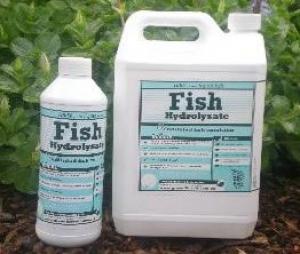 Fish hydrolysate. Made from the waste from fish processing, hydrolysate still contains oils (otherwise removed as a saleable commodity) whereas emulsion has had them removed. Like kelp, fish products contain a wide range of trace elements and fish hydro is a great way to feed soil microbes. Because it contains oil, we have found it best not to be used as a foliar fertiliser - especially in hot weather, as it can concentrate the sun's rays and cause burning. Our fish hydrolysate is certified organic. Fish hydrolysate. Made from the waste from fish processing, hydrolysate still contains oils (otherwise removed as a saleable commodity) whereas emulsion has had them removed. Like kelp, fish products contain a wide range of trace elements and fish hydro is a great way to feed soil microbes. Because it contains oil, we have found it best not to be used as a foliar fertiliser - especially in hot weather, as it can concentrate the sun's rays and cause burning. Our fish hydrolysate is certified organic. Worm whiz. This is the leachate from a worm farm and is one of the easiest and best tonics you can use in the garden. Having a worm farm is great - worms are easy to look after and a farm will reward you with 'liquid gold' to use regularly in your garden, and 'black gold' worm castings from time to time. It contains trace elements & microbes and can't burn your plants. It should look like weak black tea when you use it; if you're collecting your own leachate the dilution rate will depend upon how often & how much water you're putting through your farm to collect. If you don't have a worm farm, liquid worm whiz is available to buy.
Eco-Vital. This is a locally made fertiliser advertised as "fish, kelp & plant extract fertiliser", and is suitable for foliar feeding of all types of plants. Certified organic.
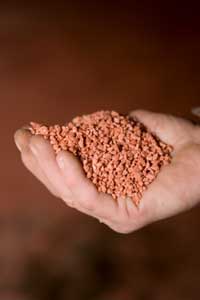 Mineral Fertilisers.Some mineral fertilisers are simply crushed minerals; containing particular useful elements. Providing them in a fine powder means they're able to be more quickly broken down further by worms, water etc. There are also granular fertlisers. These are often a range of minerals blended and bonded or prilled into larger lumps - mostly for ease of application and to go through fertiliser spreading machinery. They're designed to break up once in contact with moisture. Slower acting, or 'slow release' - nutrients are gradually released as the granules are dissolved and elements are made available to plants. These types of fertilisers are normally used just a few times a year - depending on your plants, and over applying them is wasteful. Follow the application rates to make sure you're not over fertilising.
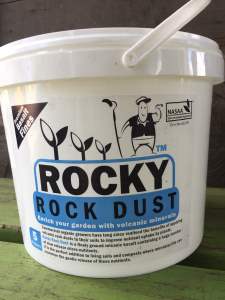 Rocky Rock Dust is a great way to provide trace elements to your soil in a slow release form. As the name suggests - these nutrients are only needed in TRACE (very small) amounts; so once or twice a year is adequate; and possibly only for a few years - especially if you're producing your own compost and working towards a 'closed loop' system. Our Rocky Rock dust is volcanic basalt rock, crushed to a fine powder. Volcanic rocks are known to include a wide source of elements; most of which our ancient, sandy soils have leached long ago. It is good to add rock dust to compost; as the weathering process can begin and nutrients can be made available in the composting process. Rocky Rock Dust is certified organic. Rocky Rock Dust is a great way to provide trace elements to your soil in a slow release form. As the name suggests - these nutrients are only needed in TRACE (very small) amounts; so once or twice a year is adequate; and possibly only for a few years - especially if you're producing your own compost and working towards a 'closed loop' system. Our Rocky Rock dust is volcanic basalt rock, crushed to a fine powder. Volcanic rocks are known to include a wide source of elements; most of which our ancient, sandy soils have leached long ago. It is good to add rock dust to compost; as the weathering process can begin and nutrients can be made available in the composting process. Rocky Rock Dust is certified organic.Growsafe is another fertiliser we like @ GLSC. It is mineral based; with added microbial coating, and it's safe for all plants (lawns, vegies, roses, trees, etc.). A WA made product, we recommend it because it's easy to use and general purpose, and it works! Keep a bag in the shed and you've always got something handy to feed the garden when it needs it. Adding microbes to your soil is a bit of a trend at the moment; you may or may not need to add them... microbes are always going to be present in the soil; but there's a huge range of types of microbes, so by adding a fertiliser that contains a wide range you are potentially increasing the soil biodiversity, and creating opportunities for symbiosis with plants.
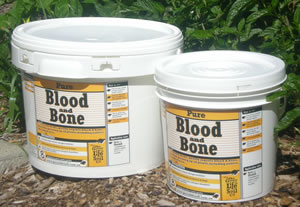 Blood & Bone. Peter Cundall says if you use blood & bone, and add a handful (up to 10% potash) you have the perfect organic fertiliser. Our blood & bone is a mix we make ourselves from blood meal & feather meal; it contains no fillers and is not a 'blood & bone BASED fertliser' (like you will find most of them are). We add a small quantity of rock dust and believe it's a great all purpose way to feed up your garden, and it's safe for natives. It's also CERTIFIED ORGANIC and very economical ~ bring back your containers to GLSC and buy it by the kilo. Great to add to your vegie garden between seasons (before planting). Blood & Bone. Peter Cundall says if you use blood & bone, and add a handful (up to 10% potash) you have the perfect organic fertiliser. Our blood & bone is a mix we make ourselves from blood meal & feather meal; it contains no fillers and is not a 'blood & bone BASED fertliser' (like you will find most of them are). We add a small quantity of rock dust and believe it's a great all purpose way to feed up your garden, and it's safe for natives. It's also CERTIFIED ORGANIC and very economical ~ bring back your containers to GLSC and buy it by the kilo. Great to add to your vegie garden between seasons (before planting). Multigrow is a pelletised, composted chicken manure product. Certified organic & locally made. The chicken manure is combined with the straw bedding material and as such, contains some organic matter. Because it's processed, it is low odor and won't burn your plants (like fresh chicken manure can). Convenient to use, the pellets can go through a fertiliser spreader and are excellent to use around fruit trees and flowering shrubs. Certified organic.
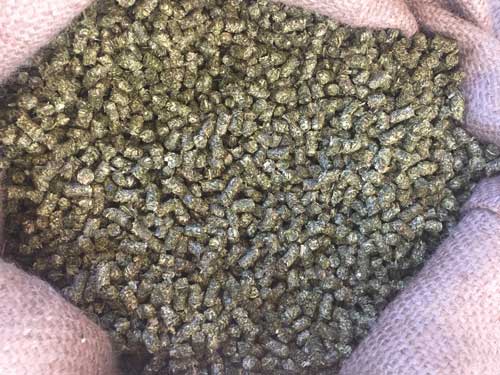 Lucerne pellets. I've included lucerne pellets as a fertliser here because they're a great option for vegan gardeners who try to avoid using animal products in the garden. Lucerne pellets are high in nitrogen and (as they're basically a mulch) provide valuable organic matter to the soil as they break down. They're great to use in pots/planters near your entertaining area, as they have no offensive odor. Lucerne pellets. I've included lucerne pellets as a fertliser here because they're a great option for vegan gardeners who try to avoid using animal products in the garden. Lucerne pellets are high in nitrogen and (as they're basically a mulch) provide valuable organic matter to the soil as they break down. They're great to use in pots/planters near your entertaining area, as they have no offensive odor.Manure. Containing a range of nutrients and especially nitrogen, we are all familiar with using manure on our gardens. What type of manure is "best" comes down to what's available locally, what's economical for you, and what your garden needs... (sorry - no easy answer!) Generally herbivore poop (sheep, cows, horses, alpaca) has fewer nutrients but more organic matter, while omnivores (pigs, chickens) have less organic matter but more nutrients in theirs. Nutrient quantity will depend on the diet of the animal, and what other organic material (eg. bedding straw/sawdust) may be in the mix. It's always better to compost manure rather than use it fresh; it is possible to overdo applications of fresh manure - and burn your plants. Be careful not to overdo manure; in our sandy soils it can lead to excesses of some nutrients (namely phosphorus) which isn't a good thing. Adding it year upon year can be detrimental, especially if that's your only soil improvement practice.
When to fertilise.
Flowering plants that you're trying to boost for regular blooms will need a little more; particularly if you're pruning and trimming regularly, as plants will need food to produce new growth and new flowers. Potash is one element that can help with flower production. Spring and Autumn are the two traditionally best times to add fertiliser; as plants are actively growing and able to access nutrients and make good use of them. Fruiting plants and vegetable are usually the hungriest of all - and as discussed earlier, you really want to make sure that edible crops contain plenty of nutrition for you and your family's benefit. Usually topping up soil between seasons (and when planting out new seedlings) is when you'd add your mineral/granular 'solid' fertilisers*, then perhaps water in with a dose of a liquid to get things settled in. (* unless you're using GLSC's soils or concentrates; and then we don't advocate adding any additional fertilisers to the soil for a good growing season or two; perhaps with the exception of liquid feeding. Observation will show you when things need topping up!)
In conclusionBuilding the soil structure will help ensure nutrients aren't leached through our very sandy soils, so look at your soil preparation prior to adding fertilisers. While plants can certainly obtain nutrients they need from inorganic/synthetic fertilisers, generally they do nothing to improve soil structure and you will create a cycle of feeding your plants over and over. Feeding your soil organically can take longer to bring results - if your plants are 'starving'; a dose of a readily absorbed fertiliser will be a quick fix, but then look at a regime of compost, etc. and build your soil. Over time, you'll need to apply less and less fertilisers, and use less water to keep plants healthy. In most cases, there isn't the need for special fertilisers (one for roses, one for citrus, one for vegetables). Read the labels to compare and see if you can find much difference in them. Often, a good balanced fertiliser will provide a range of nutrients suitable for everything; it might only be the dosage you need to adjust.
If you're ordering over the phone, or in store, please ask our team for the VIP February Deal. Orders must be placed & paid for by the closing date of the special (4pm Friday, 8th March), but can be booked ahead for any time. Offer is for retail customers only. Because we've missed the start of February we're extending it until March 8th. (And as a heads up - there's a long weekend early March so what a great opportunity to work on your Autumn garden.) Whether you need to revamp a bed with one of our concentrate products, or start a new garden or lawn from scratch and need one of our complete soil mixes, give us a call ~ we're happy to advise you on the best product for your needs. Photo Competition WinnerCongratulations to Paul T. from Carlisle, who sent in these pictures recently. He had the following to say about his raised garden beds:- "I keep meaning to send you a before and after photo of a raised planter I used your garden soil mix in - it was early 2017 when you had just started adding Charlie Charcoal. Anyhow; results speak for themselves- one pic is March 2017 and the other pic is about five mins ago (1.2.19). There is drip irrigation and it’s had an occasional dose of seasol but otherwise that’s it. kudos!" Thanks Paul! It looks like a lovely place to enjoy a summer evening, especially with the scent of Frangipani on the warm summer air! Paul wins a $50 store credit to spend with us @ GLSC. Want to be in it to win it? All you have to do is send us a pic (or pics) of your garden with a few notes about it. We draw one at random each month as our prizewinner. You can email the pics or send via our Facebook page - simple!
Retail Stockist Update
New Product Alert!
Come and have a look.
Thanks again for reading our February news - see you next time! Remember to stay in touch via our Facebook and Instagram socials for latest news & gossip.
|

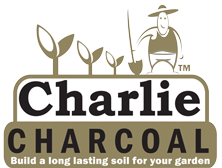

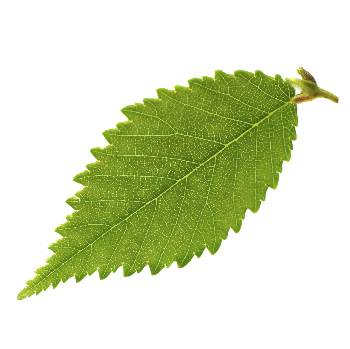 Summertime! It's certainly arrived; and the year is steaming ahead (literally) - with kids back to school and things settling back to "normal"... Clubs, committees and community groups are all back to work. The NGIWA (Nursery & Garden industry) is no exception; planning is well underway for 2019 Perth Garden Festival. GLSC will be there again; this year Leesa from The Greenhouse will be back with a heap of seasonal vegetables & herbs for you; so make a mental note to take a bag along for your goodies - hopefully now the single use plastic bag ban has got you into the habit!
Summertime! It's certainly arrived; and the year is steaming ahead (literally) - with kids back to school and things settling back to "normal"... Clubs, committees and community groups are all back to work. The NGIWA (Nursery & Garden industry) is no exception; planning is well underway for 2019 Perth Garden Festival. GLSC will be there again; this year Leesa from The Greenhouse will be back with a heap of seasonal vegetables & herbs for you; so make a mental note to take a bag along for your goodies - hopefully now the single use plastic bag ban has got you into the habit!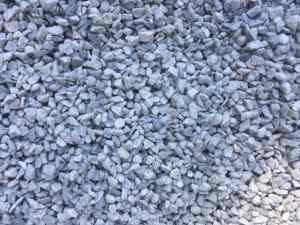 Each summer, we are obviously concerned with water usage in our gardens and homes. We've talked in newsletters previously about the benefits of a wicking bed in our climate (and have a free,
Each summer, we are obviously concerned with water usage in our gardens and homes. We've talked in newsletters previously about the benefits of a wicking bed in our climate (and have a free, 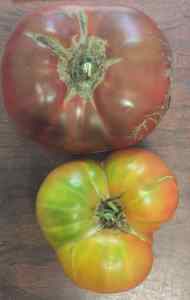 Thank you to those who brought in their tomatoes for our 2019 competition. Stay tuned for the announcement of winner(s) in next month's newsletter. It's all a bit of fun to encourage growers; and for one entrant this year it was her first time ever growing tomatoes - which is awesome!
Thank you to those who brought in their tomatoes for our 2019 competition. Stay tuned for the announcement of winner(s) in next month's newsletter. It's all a bit of fun to encourage growers; and for one entrant this year it was her first time ever growing tomatoes - which is awesome!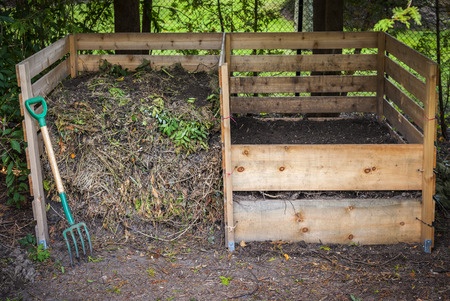 Check your compost. Is it cooking nicely, and is it/will it be ready for Autumn planting? Turn it & wet it through ~ and keep it up over the next few weeks ~ to make sure it's good to go. New to compost? Check out our
Check your compost. Is it cooking nicely, and is it/will it be ready for Autumn planting? Turn it & wet it through ~ and keep it up over the next few weeks ~ to make sure it's good to go. New to compost? Check out our .JPG) Fertilise your fruit trees. Stone fruits have nearly finished for the season, but are still actively growing; so before they go dormant for Winter, feed them up now with a good organic fertiliser to encourage healthy growth & crops for next year. Fertilise citrus too - make sure you water well before & after fertilising, and top up mulch if necessary. They're shallow rooted and will appreciate mulching and regular watering.
Fertilise your fruit trees. Stone fruits have nearly finished for the season, but are still actively growing; so before they go dormant for Winter, feed them up now with a good organic fertiliser to encourage healthy growth & crops for next year. Fertilise citrus too - make sure you water well before & after fertilising, and top up mulch if necessary. They're shallow rooted and will appreciate mulching and regular watering.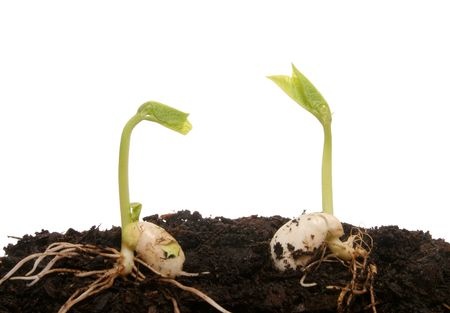 Check out our free,
Check out our free, 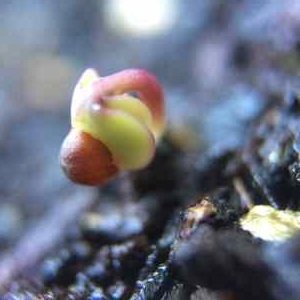 don't sow too deeply. The general rule is no more deep than twice the width of the seed. Tiny seeds can be scattered on the top of the soil, with a mere sprinkling of soil over the top.
don't sow too deeply. The general rule is no more deep than twice the width of the seed. Tiny seeds can be scattered on the top of the soil, with a mere sprinkling of soil over the top..JPG)
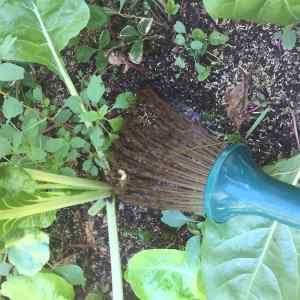 Observing your plants' health is usually the best indication. If plants are growing well with little interference - there's probably not much point fertilising; or no more than once a year at most. Many ornamental shrubs and trees fall into this category.
Observing your plants' health is usually the best indication. If plants are growing well with little interference - there's probably not much point fertilising; or no more than once a year at most. Many ornamental shrubs and trees fall into this category. Some vegetable crops (in particular leafy greens) will benefit from a light liquid feed regularly throughout the growing season. Beware some fruiting plants (like tomatoes) once producing should not be regularly fertilised; as it can lead to more leaf growth over flowering - so you'll get less produce. Also be aware that over fertilising can lead to sappy growth that can attract pests like aphids.
Some vegetable crops (in particular leafy greens) will benefit from a light liquid feed regularly throughout the growing season. Beware some fruiting plants (like tomatoes) once producing should not be regularly fertilised; as it can lead to more leaf growth over flowering - so you'll get less produce. Also be aware that over fertilising can lead to sappy growth that can attract pests like aphids.  With Autumn around the corner, we know many of you will be itching to get into your garden and prepare for the new season's plantings - so we've got a very special VIP deal for February. We're dropping our bulk delivery prices BY HALF; so you can get your soil delivered for 50% less than the usual delivery cost. We know those of you who live a little further out find the cost of a bulk delivery to be a bit of a burden. So don't delay - get your garden goodies organised NOW.
With Autumn around the corner, we know many of you will be itching to get into your garden and prepare for the new season's plantings - so we've got a very special VIP deal for February. We're dropping our bulk delivery prices BY HALF; so you can get your soil delivered for 50% less than the usual delivery cost. We know those of you who live a little further out find the cost of a bulk delivery to be a bit of a burden. So don't delay - get your garden goodies organised NOW. 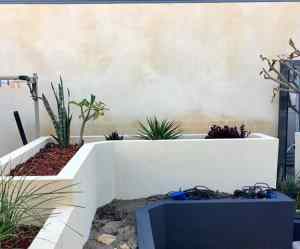
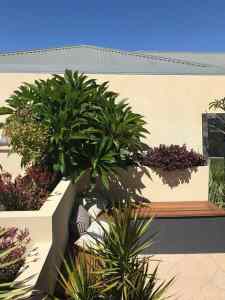
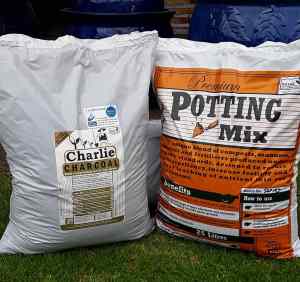 Please support the local & independent businesses who support us. You'll find great advice and friendly service close to home!
(Please note - the range of products available will vary from store to store so it's always best to check with them for what you're looking for. If it's something they don't usually carry they would most likely be happy to add it to their next order.)
Please support the local & independent businesses who support us. You'll find great advice and friendly service close to home!
(Please note - the range of products available will vary from store to store so it's always best to check with them for what you're looking for. If it's something they don't usually carry they would most likely be happy to add it to their next order.)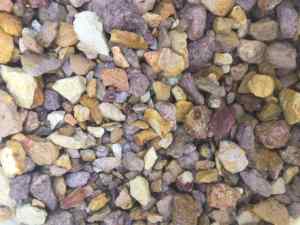 We've been stocking Spongolite (and using it) for some time - recently we got in some "rainbow spongolite" - which is larger & chunkier (average 15mm - 30mm approx). Useful for drainage in pots; and ironically for water holding (as spongolite is so very porous). It's lightweight, so good for big planters, and also looks great when the spongolite dust is washed off and it's used as a mulch! Specialty mixes, aquaponics... similar applications to pumice - its use is only limited by your imagination!
We've been stocking Spongolite (and using it) for some time - recently we got in some "rainbow spongolite" - which is larger & chunkier (average 15mm - 30mm approx). Useful for drainage in pots; and ironically for water holding (as spongolite is so very porous). It's lightweight, so good for big planters, and also looks great when the spongolite dust is washed off and it's used as a mulch! Specialty mixes, aquaponics... similar applications to pumice - its use is only limited by your imagination! 




